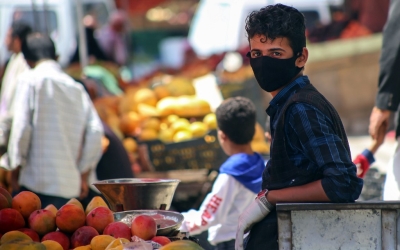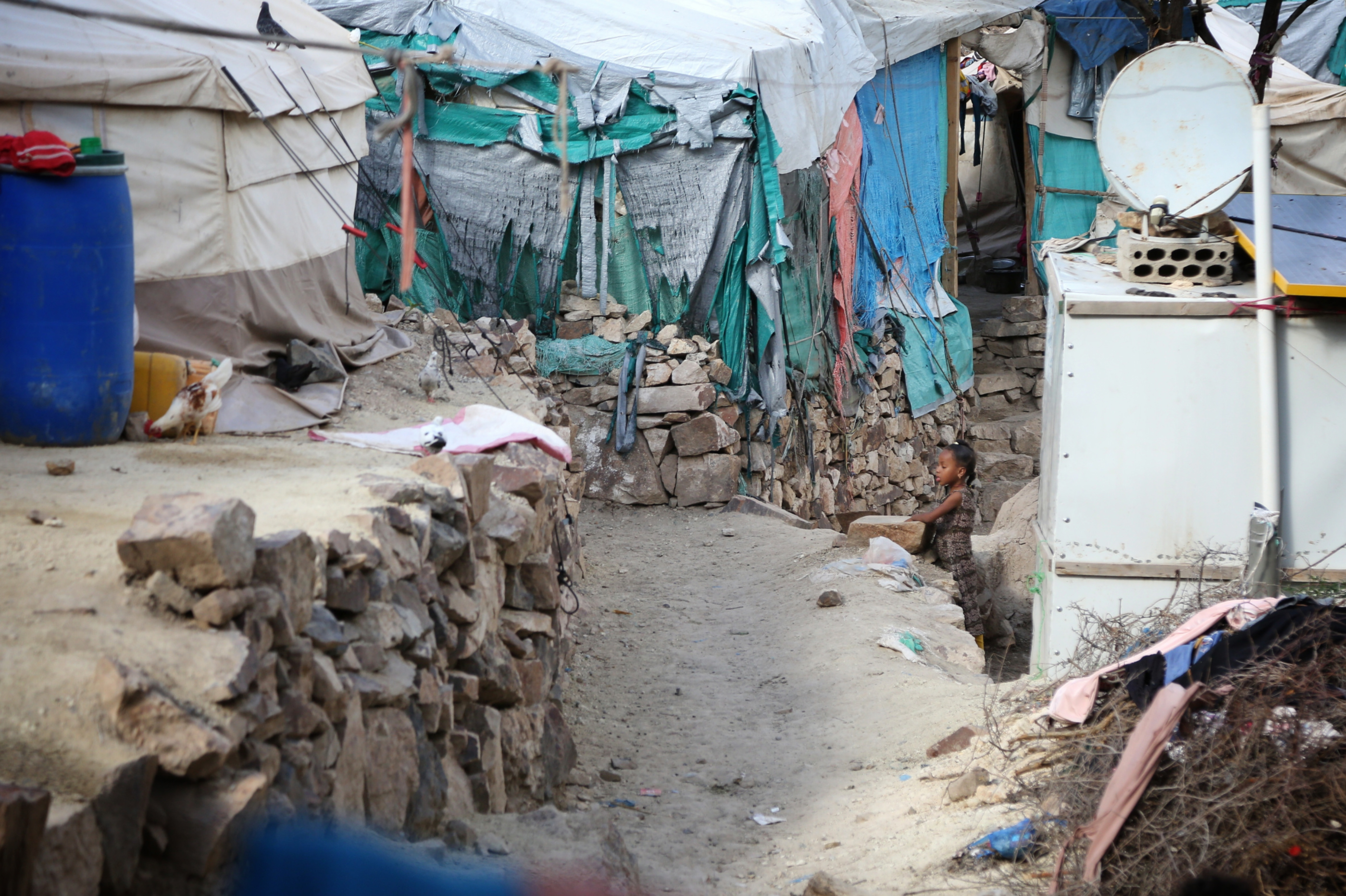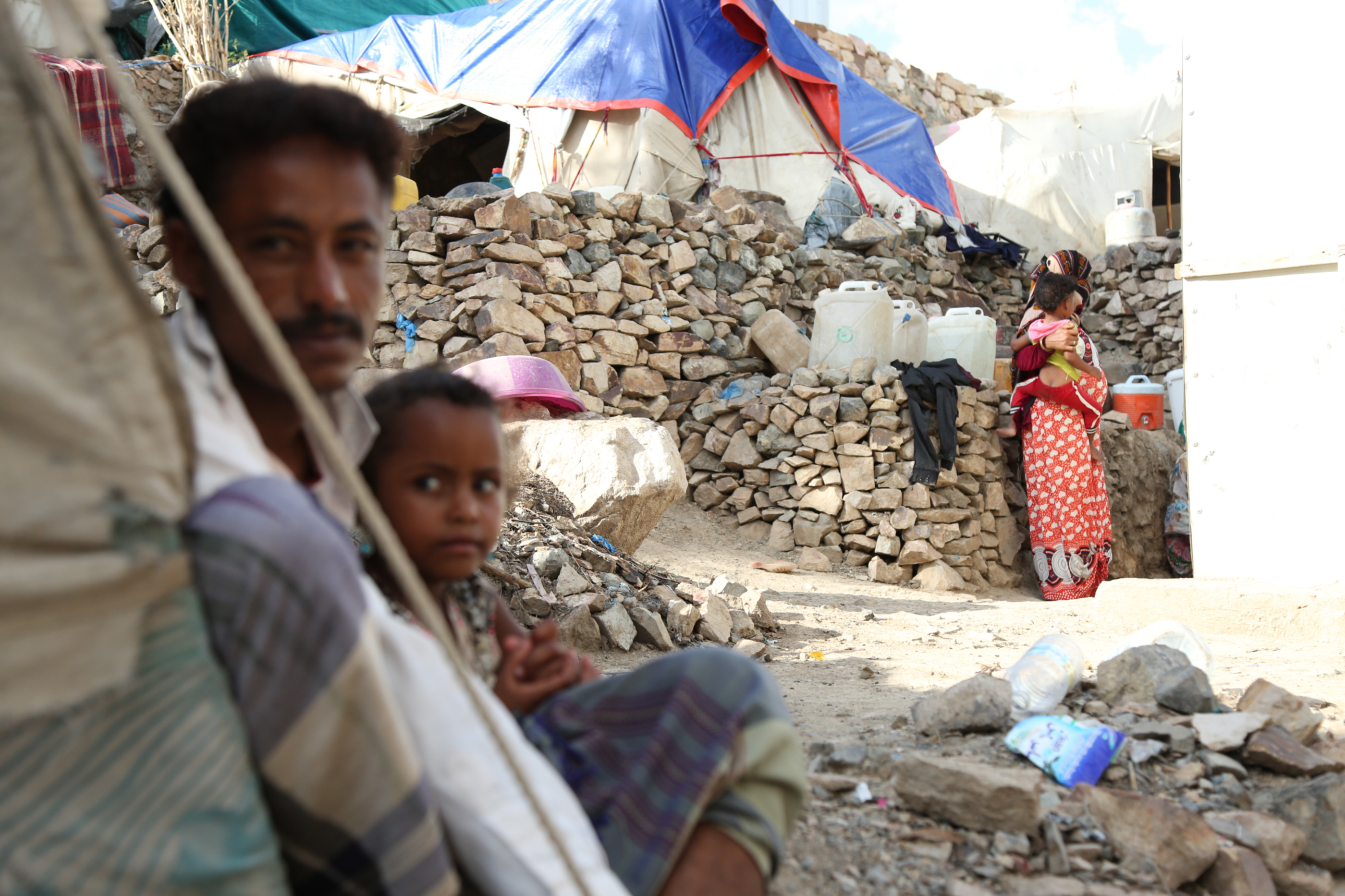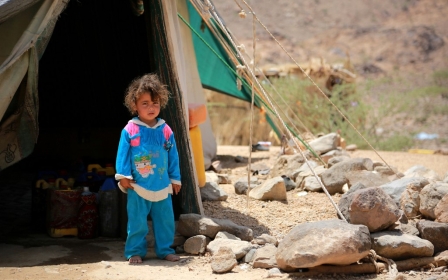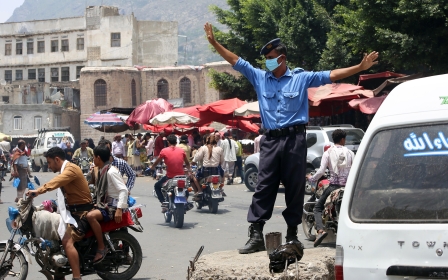Coronavirus: Yemen's hungry turn to begging as crisis deepens
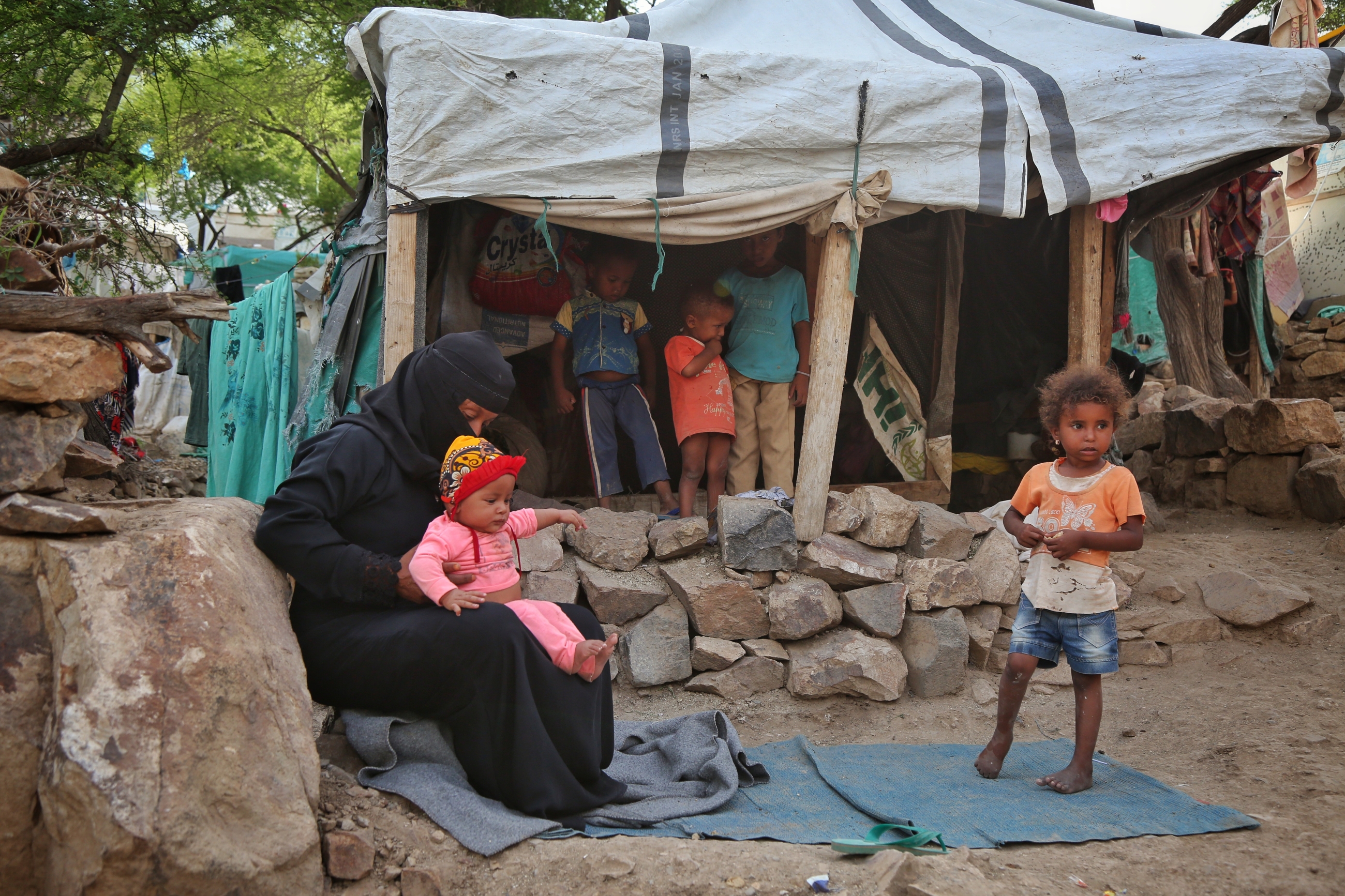
Azizah al-Hayani is a 40-year-old displaced woman in al-Kadaha camp, which lies south of the Yemeni city of Taiz.
After the fighting between Houthi rebels and government forces reached their village in 2017, her family of 10 fled Maqbana district, located on the road between Taiz and Hodeidah provinces.
Hayani’s husband was a day labourer, but after being forced to leave their home, he started suffering from high blood pressure and diabetes, leaving her to become the family’s main provider.
“I’ve been the breadwinner since 2017. I started going from house to house selling vegetables in this area,” Hayani told Middle East Eye.
“It is very difficult being a mother of eight children and the breadwinner of the family."
Hayani and her family live under one tent made of wood and tarp, where the only food to be found is whatever she brings in that day.
“When we arrived to this area, the residents helped us set up the tent and then some displaced people helped us with food. They still do that sometimes," she said.
The income that Hayani earns from selling vegetables was already hardly enough to buy the most basic necessities, but when coronavirus spread in Taiz, things became even worse.
“I used to earn around 1,500 rials ($2) per day and I struggled to provide my children with food and buy my husband his medicines," she said.
“But there’s no more work these days. People stopped buying vegetables from me, saying I’m spreading corona from house to house."
Closed doors
Hayani wasn’t fully aware of Covid-19 and its dangers until her customers started closing their front doors in her face because they were afraid of contracting the virus.
“I used to have some customers who supported my work over the past three years, but nowadays they close their doors, telling me not to knock on them again," she recalled.
Hayani believes that her customers are good people but the danger of Covid-19 has forced them to behave this way.
“I’ve lost my work and if I stay at home, we would starve to death and my husband wouldn’t get his medicines. We had no other solution but to beg in the market."
In the morning, Hayani sends her children to the market daily to beg until noon so that the family has food to eat that day. She sometimes begs herself.
“No one wants to beg or to see their children beg but this is better than staying at home and going hungry."
Most of the displaced people in al-Kadaha have sent their children to beg in the streets and markets after having lost their jobs either after fleeing their homes or with the spread of Covid-19.
Many women in the camp have also been forced to beg.
'I don’t care about corona as this is a disease from God, but I’m worried about my children starving to death'
- Azizah al-Hayani
Hayani said she is not afraid of the virus.
To her, it is not more dangerous than hunger, and the family cannot take any precautionary measures in an overcrowded camp.
“We are ten people under the same tent and there are thousands of people living in this overcrowded camp who are in need of all basic services, including water and soap, so how can we save ourselves from corona?” she said.
“I don’t care about corona as this is a disease from God, but I’m worried about my children starving to death."
The UN refugee agency said last month that its work in Yemen was approaching a "potential breaking point" as the coronavirus spreads, with rising numbers of families resorting to begging, child labour and the marrying of children.
An estimated 80 percent of the population - 24 million people - require some form of humanitarian or protection assistance, including 14.3 million who are in acute need, according to the United Nations Office for the Coordination of Humanitarian Affairs (OCHA).
The first Covid-19 case was confirmed in Yemen on 10 April. There are currently more than 900 confirmed cases in the areas under the control of the internationally recognised government, while the Houthis have announced only four cases with one death, all in Sanaa. However, the number of cases is likely far higher than what has been reported.
Ahlam Mohamed, a member of Shiryan al-Ata, one of the civil society organisations working in Taiz, said there has been an increase in the number of beggars after the virus broke in Yemen.
She said people cannot afford to maintain social distance, otherwise they would starve, with many having lost their jobs and now dependent on charity.
Food vs Covid-19
Soleiman al-Moghabesh, a young displaced man in al-Kadaha, said that most of the displaced families do not have food in their tents and rely on begging.
“Some families in this camp have been depending on begging since 2017, while others only started in the past few months after they lost their jobs due to corona”, Moghabesh told MEE.
'If the children don’t beg, who is going to provide us with food? Can you imagine how hunger will kill us in our tents?'
- Soleiman al-Moghabesh
“Food is the priority for us. We still go to the market to look for work and our children beg to help us provide for our families.”
While Moghabesh is aware of the spread of Covid-19 in Taiz he, like Hayani, believes that it is not more dangerous than hunger.
“We’ve heard that some people got infected with corona, but they have recovered as it isn’t always very dangerous,” he said.
“At the same time, we’ve also heard that malnutrition has led to the death of many people, including many children."
Almost 20 million people in Yemen are food insecure, while an estimated quarter of a million are on the brink of starvation.
Moghabesh said that he will not stop going to the market, even if the virus spreads in his area. The children of the camp, he says, will keep working the markets and the streets.
“If the children don’t beg, who is going to provide us with food? Can you imagine how hunger will kill us in our tents? I thank the generous people who are helping the children and women with some food and money because they are helping us to stay alive.”
Moghabesh is pessimistic. He has had many hopes dashed across the course of his life, including his dream of returning home.
“I used to dream to have my own project, but in displacement all we can think about, all the time, is getting food and basic services,” he added.
“The biggest dream has become to return home.”
No place like home
The sociology professor Mamoon Mohammed says that the increase of beggars is an expected result of the ongoing war and the pandemic.
While people have lost their jobs due to Covid-19 all over the world, the situation is more critical in Yemen, Mohammed believes, because it was already dire before the virus.
“It is very difficult to tell people to stay at home when they don’t have food to eat or water to wash their hands,” he said.
“The government and organisations should intervene and provide displaced and needy people with enough food to stay home.”
It is estimated that more than 3.6 million people have been forced to flee their houses in Yemen since the start of the latest conflict in 2015, according to the UNHCR.
Hayani said she hopes to return to her house and resume her normal life. That’s proving difficult, with fighting ongoing there.
“There is no place better than home," she said.
“If I was at home, I would have cared about corona, but here I’m facing many challenges and corona will not be worse.”
Middle East Eye delivers independent and unrivalled coverage and analysis of the Middle East, North Africa and beyond. To learn more about republishing this content and the associated fees, please fill out this form. More about MEE can be found here.


